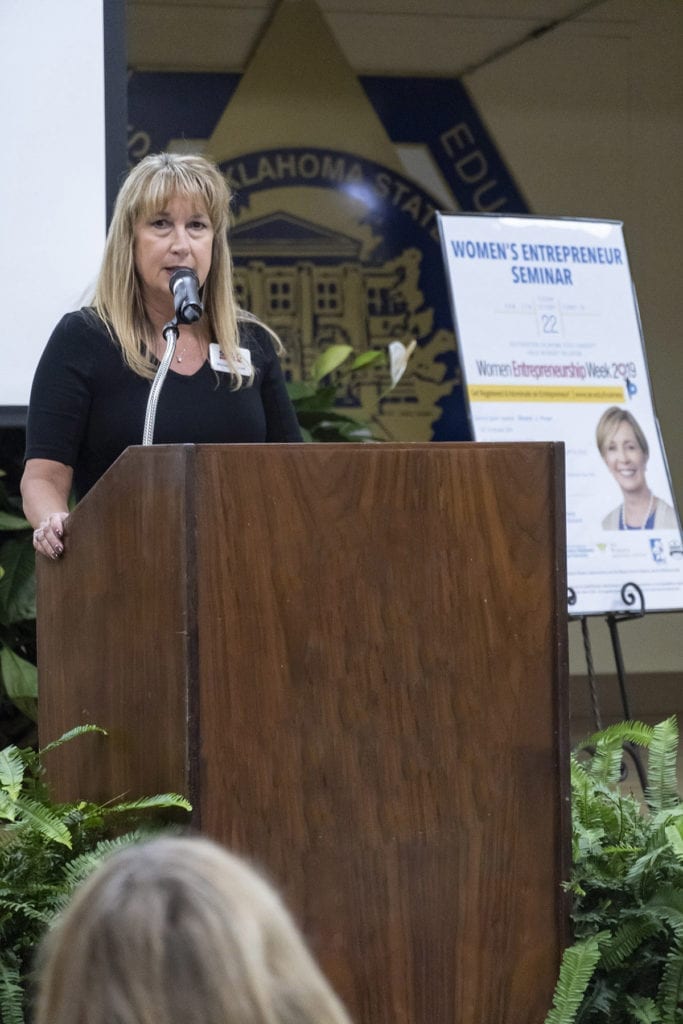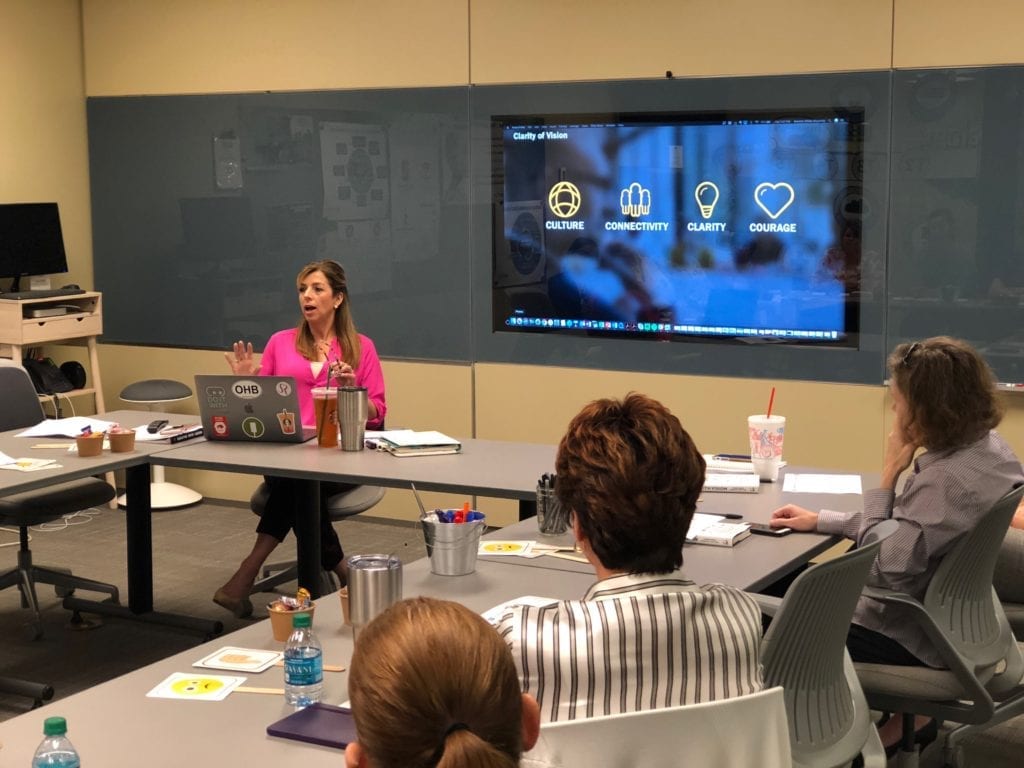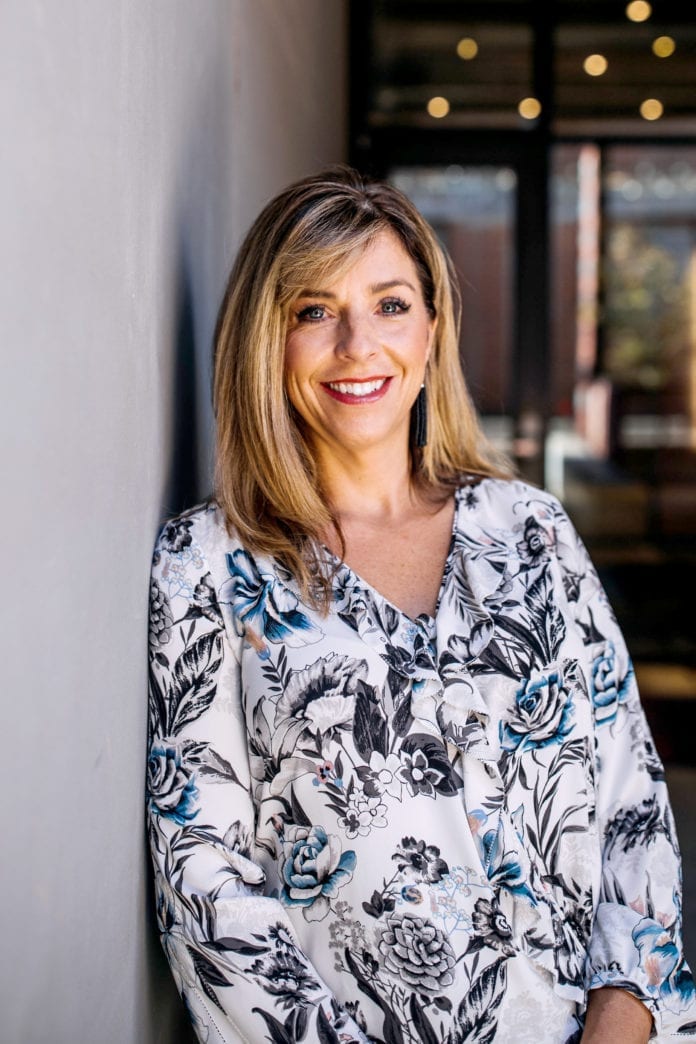Women Helping Women
Melena Keeth relied on advice from people who had been there when she opened her chiropractic practice in Oklahoma City six years ago. Now she has a few tips to offer other female entrepreneurs.
“Don’t give up,” Keeth says. “The hardest part is hanging in there long enough to see it come to fruition.”
Keeth worked with REI Oklahoma’s Women’s Business Center, where Jennifer Edwards is program manager.
“Jennifer’s group gave me moral support and advice,” Keeth says.
REI, an economic development organization with offices throughout the state, offered Keeth a networking opportunity with women’s breakfasts every month and classes on taxes and bookkeeping.
“We’ve grown by adding high-impact programs for Oklahoma’s entrepreneurs, including a federal contract with the U.S. Small Business Administration, to offer business development training, free one-on-one business counseling, and networking and referral assistance,” Edwards says.
Michele Campbell Hockersmith, state director of the Oklahoma Small Business Development Center Network, says her group has programs targeted towards female entrepreneurs.
“We’ve partnered on an event at Southeastern Oklahoma State University with the John Massey School of Business in conjunction with Women’s Entrepreneurship Week,” Hockersmith says. “That included a panel of female small-business owners to discuss their experiences in the businesses they started or purchased. They talked about challenges – obtaining a loan, marketing strategies, as well as encouragement to utilize our services but also to take the risk.”
Connie Nance, commerical banking relationship manager at Bank of Oklahoma and a member of the leadership committee of BOK’s Outstanding Women Leaders Program, says women in management gather twice a year to hear speakers share their personal journeys.
“Women crave the opportunity to meet with others in their position, whether it is in or out of their industry, because they face many of the same challenges,” Nance says.
Annette White-Klososky, a business consultant and state chair of the Women Presidents Organization, organizes monthly meetings of women in key company roles. The organization is for second-stage businesses generating $1 million annually in services or $2 million in product sales.
Meetings are held in video-enabled conference rooms in Oklahoma City so that members from other cities can participate. Recent topics have included recruiting, product pricing, company growing pains and relationships with co-workers.
Hockersmith says it’s been exciting to see women involved in the growth of tech-industry firms, including products essential to the military and homeland security. She cites Kathy Martin, president and majority owner of Red Hawk Construction of Oklahoma City, which created the Nomad Security Fence System used in Texas to protect Federal Aviation Administration equipment.
Hockersmith has also worked with Jenn Stephens, chief operating officer of Stillwater’s Cowboy Barriers, which creates portable devices to protect facilities and people from rogue vehicles.
“We help potential business owners with putting business plans in front of lenders,” Hockersmith says. “We don’t loan money, but we help them be more marketable to the banker.”

Photo courtesy Oklahoma Small Business Development Center
Entrepreneurial Struggles
Starting a business is never easy, and women can face additional challenges, according to nonprofits that serve female entrepreneurs.
“Securing capital is something that we often hear from our clients, as well as potential entrepreneurs, as a hindrance to their startup,” says Edwards. “It can be difficult for some women to find an investor or banker, overcome credit challenges and provide collateral to secure funding – all of which can frustrate an entrepreneur.
“The [REI Oklahoma’s Women’s Business Center] offers assistance in navigating the financing process, from training on how to develop strong financials and projections to providing counseling on developing a business plan and overcoming challenges to securing capital.”
Hockersmith adds that other situational factors can take a toll.
“A lot of times, women are trying to transition out of regular jobs into self-employment, so they might be juggling both jobs. She might be a single parent.”
With technology businesses, women face social perceptions that men are leaders in fields such as engineering, Hockersmith says.
Edwards adds, “Women also express the barrier of ‘doing it alone,’ meaning they fear a lack of support once they start and run their own business.”
Oklahoma Incentives
Oklahoma is a great place to open a business, says Hockersmith.
“Oklahoma is business-friendly, the cost of living is good, and we’re in a central location,” she says. “There is a lot of opportunity right now.”
Agri-tourism is one of the industries where women are taking advantage of demand as well as the favorable business climate, says Hockersmith, citing such ventures as wineries, berry farms and countryside wedding venues.
“Women need to not allow themselves to get caught up in a stereotype that all the CEOS need to be men,” she says, adding that the time has never been better in Oklahoma for a woman to start a business and noting that in the eastern part of the state “there is explosive growth in lodging, restaurants, entertainment and agri-tourism.”
Women-Owned
Business Certifications
The Oklahoma Department of Commerce certifies women-owned businesses in the state. The program may benefit businesses that have faced barriers to market entry or participation, according to the department’s website.
Some companies and state agencies use certifications to ensure diversity in the selection of contractors, vendors and suppliers.
Benefits of this certification include expanded opportunities when competing for contracts with public and private sector entities, according to the Department of Commerce.
The REI Women’s Business Center helps female business owners navigate the certification process, says Edwards.
“The federal government’s goal is to award at least 5% of all federal contracting dollars to women-owned small businesses each year,” she says.
Once the certification is granted, Edwards says her organization provides guidance on how to bid on and secure federal contracts.
Any woman-owned small business is eligible to apply for certification. The business must be at least 51% owned and controlled by one or more women. The application is found on the Department of Commerce website.
Industries eligible for the certification include food service, accommodations, agriculture, arts, entertainment, recreation, construction, education services, finance, insurance, health care, information management, manufacturing, real estate, retail, transportation and warehousing.

Photo courtesy Annette White-Klososky
Grants for Women
Many people are pulling for entrepreneurs who want to take their dreams to the next level, including corporations and nonprofits offering grants.
The Girlboss Foundation, dedicated to millennials, tries to help women redefine success for themselves, according to the group’s website. Twice a year, the foundation awards a $15,000 grant to a woman who owns an established business in the field of design, fashion, music or the arts. The project should be a creative endeavor benefitting women that is achievable in 12 months.
The nationwide Amber Grant awards a $4,000 grant every month to a woman. At the end of the year, one of the 12 recipients receives an additional $25,000. WomensNet launched the Amber Grant in 1998 in memory of Amber Wigdahl, a Californian who died at age 19 before she could realize her entrepreneurial aspirations, according to the group’s website.
The FedEx Small Business Grant Contest picks 12 such firms across the country each year for grants of up to $50,000 and up to $7,500 in FedEx Office print and business services.
The National Association for the Self-Employed awards grants of up to $5,000 to micro-business owners who have specific needs, such as equipment, software, advertising materials or training.























